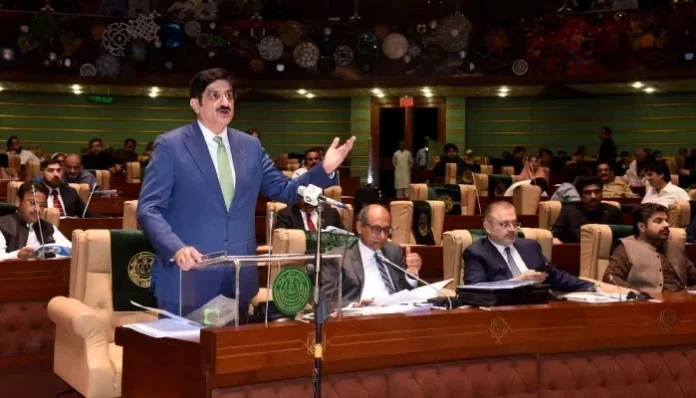The Sindh Assembly on Wednesday approved a Rs3.45 trillion budget for the fiscal year 2025–26, reflecting a 12.9% increase over the previous year. The budget, presented by Chief Minister Syed Murad Ali Shah—who also holds the finance portfolio—centers on economic reform, social protection, and infrastructure development.
Despite facing over 2,000 cut motions from opposition members, all proposed amendments were rejected through a majority vote.
While presenting the Sindh Finance Bill 2025, CM Murad described the budget as both “pro-growth and pro-people,” designed to ease the burden on low- and middle-income groups and to support sustainable economic initiatives.
Key relief measures include the withdrawal of six levies—most notably the professional tax—resulting in a Rs5 billion benefit for salaried workers and small businesses. The entertainment duty has been abolished to encourage cultural revival, and documentation fees related to land have been slashed by 50%. Additionally, the annual tax on commercial vehicles has been capped at Rs1,000.
Out of the total budget, Rs1,018.3 billion—roughly 30%—has been earmarked for development spending, while Rs281.7 billion is allocated for capital expenditure. The government also announced Rs43 billion for an Ad-hoc relief allowance and Rs16 billion for a 15% increase in pensions.
In the education sector, public universities will receive Rs42.2 billion, and Rs10.4 billion has been allocated to medical education. Meanwhile, stamp duty for third-party insurance has been fixed at Rs50, and motorcycles have been exempted from insurance requirements.
Several key projects have been included in the Annual Development Programme: Rs8 billion for the Benazir Hari Card, Rs2 billion for low-income housing, and Rs25 billion to support renewable energy initiatives.
Modernisation is another theme of the budget. The government announced the digitisation of land records using blockchain technology and the introduction of a single-step land ownership transfer system. Other reforms include mobile-based birth registration and expanded credit access for farmers through the Sindh Cooperative Bank.




